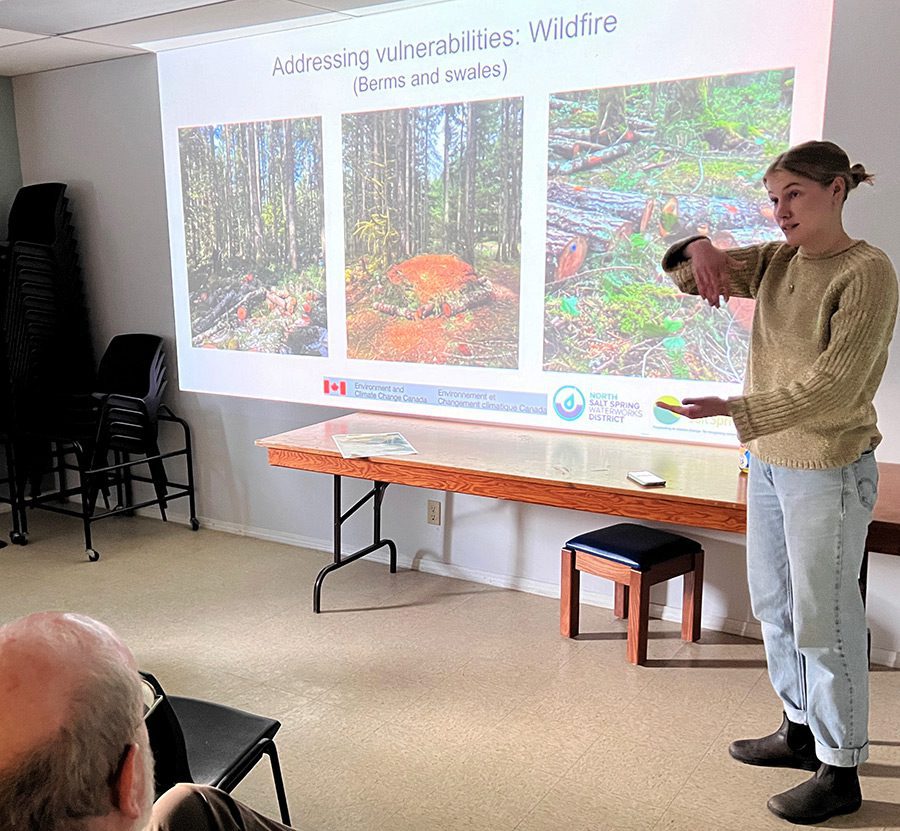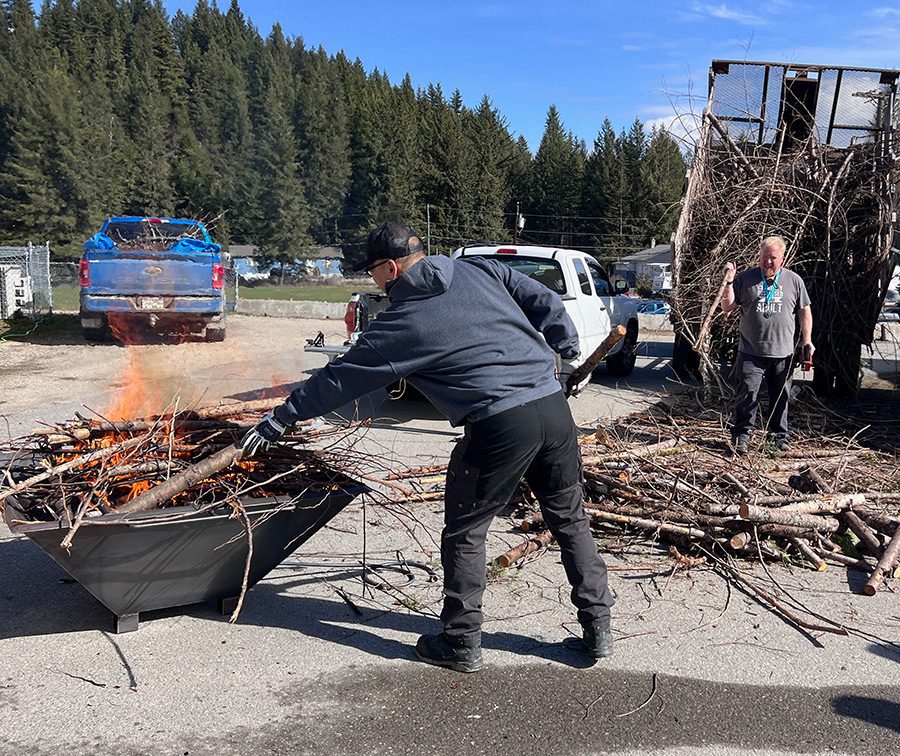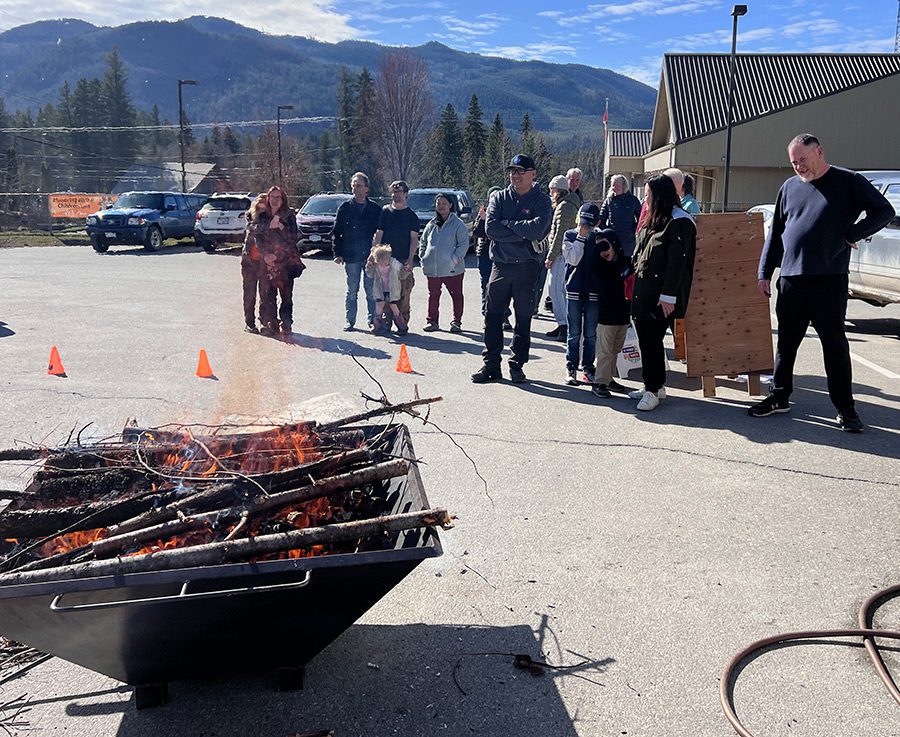
On April 5th and 6th, Grace Fields, the TSS Project Coordinator for the Climate Adaptation Research Lab (CARL), and Brian Smallshaw (Biochar Working Group Lead) travelled up to Clearwater, BC, to speak to community members on improving the resiliency of their forests to climate change and wildfire.
On Friday evening, organized by Astrid Arumae of the Tamarack Institute, the two gave a lecture at the local library. Grace provided an overview of CARL’s work in the Hwmet’utsum (Mount Maxwell) watershed.
Among other things, the CARL team is researching how deliberate disturbance of a second-growth forest might be used to increase the understory, expand biodiversity, and improve the water retention of the soils.
Brian outlined the Biochar Working Group’s efforts, including using biochar kilns to safely manage yard waste; he talked about how the resulting biochar can be used in gardens and orchards. In response to the increasingly dry summers, he has been spreading biochar on the forest floor of his property to increase moisture retention.
The two held a biochar demonstration on Saturday morning as part of Clearwater’s Annual Seedy Saturday event. One of the two biochar kilns Brian delivered to Clearwater was lit, and community members provided several truckloads of brush to put into the kiln.


Over the next several hours, many people came by to see biochar-making in action and learn how they might apply it to their own properties. There is a keen interest in managing wildfire risk as there have been several very serious forest fires recently, and it is believed that with climate change, summer drought conditions will likely worsen in the coming years.
The made-on-Salt Spring kilns that were delivered to the community will be available for community members to borrow through Yellowhead Community Services.
